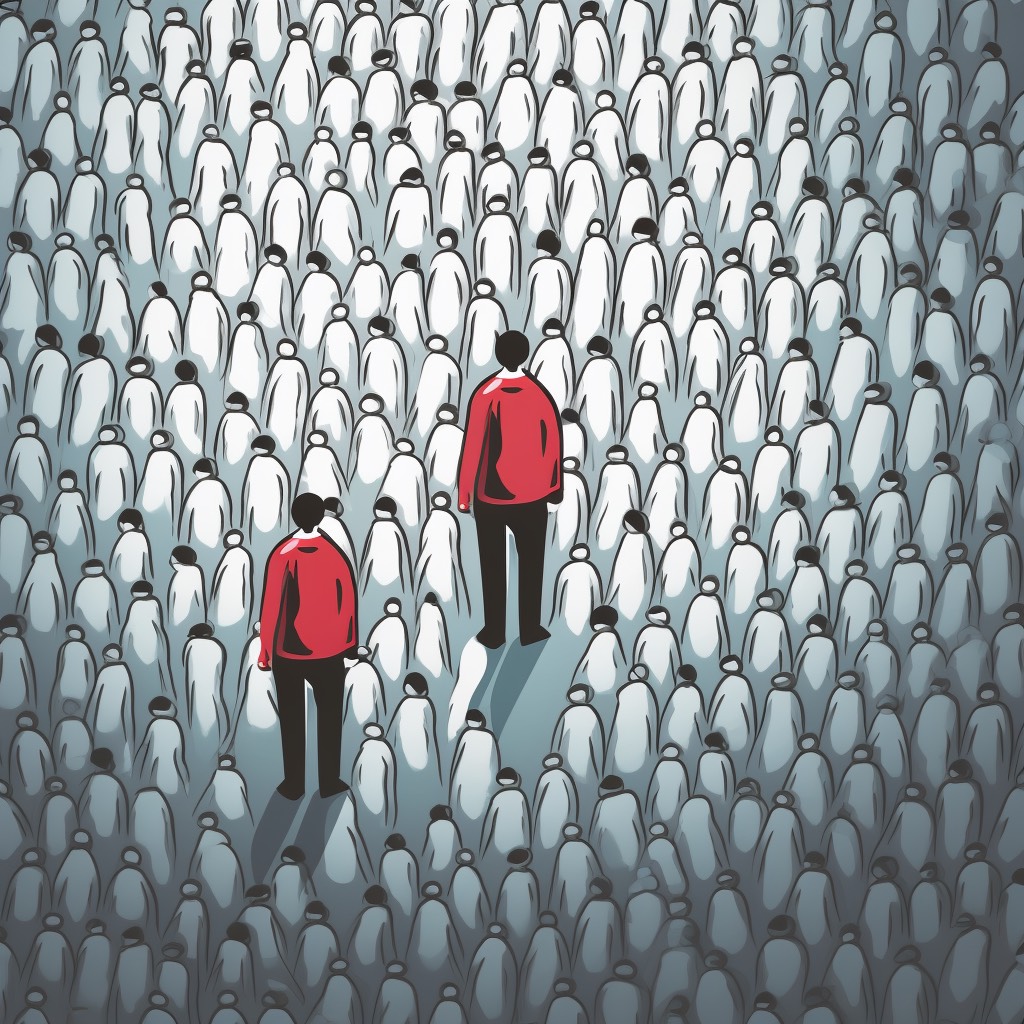What do you believe would be the most significant benefit of implementing Universal Basic Income (UBI)? (Select all that apply)
- Reducing poverty and inequality.
- Enhancing individual freedom and autonomy.
- Stimulating economic growth and innovation.
- Improving mental health and well-being.
- Other (please specify).
Polling can play a crucial role in addressing poverty by identifying the specific challenges and issues communities face. By understanding the root causes and the extent of poverty, policymakers and organizations can develop targeted interventions and policies. Furthermore, Pollpapa gives the space and the audience for individuals to try polling as a tool for collecting necessary insights from the community for starting a small business, changing jobs, getting a new training or changing location.
Polling allows to prioritize the most pressing needs of the community. By gathering data on the most critical issues affecting the population, resources can be allocated more efficiently to tackle poverty effectively.
Crafting poverty alleviation programs that are tailored to the specific needs and preferences of the community, rather than implementing generic solutions, is very important and more efficient. Policymakers have to be able to assess the outcomes and make necessary adjustments to enhance the program’s impact, and the best way is to ask the impacted community. Which in turn feels more engaged and willing to participate. This involvement can lead to more sustainable and inclusive poverty reduction initiatives.
What do you think might be the biggest challenge in implementing UBI? (Select all that apply)
- Funding the program without increasing taxes significantly.
- Ensuring that people still have an incentive to work.
- Avoiding potential inflation and price increases.
- Overcoming political opposition and bureaucratic challenges.
- Other
Polling results can be used to raise public awareness about poverty-related issues. When the broader population is informed about the challenges faced by impoverished communities, there is a greater chance of garnering support for poverty alleviation efforts.
Should UBI be a global initiative to address global economic disparities?
-
Yes, it should be implemented on a global scale.
-
It could be considered for specific regions or countries with greater need.
-
No, it should remain a national policy.
-
Not sure / No opinion.
Data collected through polling can be instrumental in advocating for policy changes at local, regional, and national levels. It provides evidence-based arguments to policymakers and lawmakers, making a compelling case for the adoption of pro-poor policies.
Would you be willing to pay higher taxes to fund a UBI program if it were to be implemented in your country?
-
Yes, I would be willing to pay higher taxes.
-
No, I would not be willing to pay higher taxes.
-
It depends on the specifics of the UBI program.
-
Not sure / No opinion.
Polling can facilitate collaboration between various stakeholders, including governments, non-governmental organizations (NGOs), and private sector entities. By working together, these actors can pool resources and expertise to tackle poverty more effectively.
Polling helps in identifying the areas or communities with the most urgent need for support. This ensures that resources are channeled to those who need them the most, maximizing the impact of poverty redution efforts.
By regularly conducting polls, policymakers can gain insights into the evolving nature of poverty and make long-term plans to address its root causes effectively.
In “Utopia for Realists,” Rutger Bregman delves into the idea that the current global economic system unfairly compensates a few wealthy countries at the expense of the rest of the world. He critiques the existing world order, which often perpetuates economic inequalities and disadvantages developing nations.
Bregman argues that historically, colonialism and imperialism played significant roles in shaping the modern global economic landscape. The exploitation of resources and labor from colonies by dominant powers has resulted in enduring disparities between wealthy nations and developing countries. He contends that even though overt colonization has diminished, the legacy of this historical injustice continues to impact the present-day economic relationships between countries.
Additionally, the author discusses how trade agreements, financial systems, and multinational corporations can reinforce these inequalities. Certain international trade policies and practices, such as tariffs and subsidies, can favor the economic interests of richer nations while limiting opportunities for poorer countries to thrive.
Moreover, Bregman highlights the adverse effects of tax havens and profit-shifting by multinational corporations, which enable them to avoid paying their fair share of taxes in the countries where they conduct their operations. This further deprives developing nations of much-needed revenue for social and economic development.
To address these issues, Bregman advocates for a more equitable global economic system. He proposes ideas like implementing a universal basic income in both developed and developing countries, which could help bridge the wealth gap and provide a basic level of economic security for all individuals. Additionally, the author supports measures that promote fair trade and labor practices, as well as international efforts to combat tax evasion and promote financial transparency.
By challenging the status quo and urging voters to reconsider existing economic paradigms, PollPapa aims to inspire a discussion on how the world can collectively move towards a more just and inclusive global system that benefits all countries, not just a privileged few.

Personal strategy
The trend of decreasing real incomes for workers in industrialized economies over the past few decades can add to an economic and political instability. Despite these economies continuing to grow, average worker incomes, especially for low-skilled workers, have not increased significantly or have even declined in some cases.
From the end of World War II until the 1980s, industrialized economies, including the United States, experienced rapid growth and prosperity. During this period, worker incomes increased in line with economic growth. However, from the mid-1980s onward, there has been a slowdown in the rate of income growth for a large part of the working population.
Some of the factors contributing to this trend include:
- Globalization: The opening of global markets in recent decades has led to stronger competition and pressure on worker wages. Companies often move their operations to low-wage regions or adopt automation technologies, which can reduce wages for certain job positions.
- Technological changes: The development of automation and artificial intelligence may reduce the demand for certain labor skills and widen the gap between highly skilled and low-skilled workers.
- Decline in union influence: Weakening of unions and a decrease in the scope of collective labor agreements can reduce workers’ bargaining power and worsen wages.
- Fiscal policies: Some tax and fiscal policies may favor the wealthy and corporations, contributing to increasing inequality.
This declining trend in real worker incomes is often referred to as “stagnant wage inequality” or “shrinking middle class.” It poses a significant challenge to society, making it increasingly important to develop policies and reforms that improve workers’ living standards and enhance social mobility. These reforms may include improving the work environment, investing in education and training, supporting entrepreneurship, and expanding social safety nets to protect the most vulnerable segments of society.
How to navigate as an individual through these facts?
Navigating through these key insights as an individual can feel daunting, but it’s quite achievable with the right strategies:
1. **Expand Your Knowledge**: Utilize polling data and surveys as a source of vital information about resources, services, and programs that can assist you in poverty alleviation. Be proactive in seeking out this knowledge as it can open doors to opportunities you may not have known existed.
2. **Express Your Needs**: View polling as a platform for expression. Use it to voice your concerns, needs, and preferences, ensuring that your unique perspective influences the development of poverty reduction policies and initiatives.
3. **Identify Service Gaps**: Pay attention to polling findings that reveal deficiencies in service delivery. Advocate for your rights to access essential services such as healthcare, education, housing, and job opportunities, which are instrumental in escaping poverty.
4. **Benefit from Customized Aid**: Understand that polling data can shape the creation of tailored interventions specific to your circumstances. Take advantage of such programs designed to meet your individual needs and challenges.
5. **Engage with Your Community**: Use polling to become aware of communal issues and aspirations. Get involved in community-driven projects to work together on local poverty challenges. Unity is strength, and a resilient community can provide a supportive environment for everyone.
6. **Expand Your Network**: Recognize that polling initiatives often bring together diverse stakeholders. Engage with these entities to create networks that may provide access to resources, mentorship, or job opportunities.
7. **Invest in Personal Development**: Through participation in polling and community discussions, enhance your self-awareness. Acknowledge your strengths, skills, and potential, which can drive you to seek further educational or vocational opportunities and improve your job prospects.
8. **Spot Entrepreneurial Opportunities**: Leverage polling data that identifies market gaps and unmet needs within your community. This can inspire entrepreneurial initiatives that lead to income generation and economic upliftment.
9. **Develop Your Skills**: Utilize polling data to understand the training needs in your community. Enroll in training programs to equip yourself with necessary skills for securing better-paying jobs or starting small businesses.
10. **Influence Policies and Advocacy**: Actively participate in polling, and leverage it to influence policymakers. Advocate for policies that focus on poverty reduction and social inclusion. Remember, your voice matters and can be a catalyst for change.
Remember, this is not a linear journey, and you may find yourself navigating through these points concurrently or in a different order based on your circumstances. The key is to remain proactive, engaged, and informed.
It’s essential and honest to note that while polling can be a valuable tool, escaping poverty often requires a multifaceted approach involving various support systems, education, skill development, and economic opportunities. Nevertheless, Pollpapa establishes the framework for more encompassing strategies to mitigate poverty.





